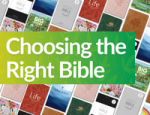We Review Cross Roads
Les Ellison
The real question is: does first time author, WM Paul Young’s second novel, ‘Cross Roads’, make the same impact as his debut offering, ‘The Shack’, or is the 18 million copy 2007 bestselling writer simply a one hit wonder?‘The Shack’ with its original and not uncontroversial take on the persons of the Holy Trinity was a runaway book publishing success. Outstripping secular book sales almost entirely by word of mouth advertising, WM Paul Young’s book for his children told a story of pain, forgiveness and redemption that millions needed to hear.
In his second novel, Young gives you a different kind of hero to the haunted, tragedy smitten Mack of ‘The Shack’. From the outset, millionaire business man Anthony (Tony) Spencer is painted as not only unlovable, but deservedly unloved. He’s single minded and unbelievably cruel; even marrying the same woman twice simply to make divorcing her more ruinous and painful.
Like Mack, Young brings his new antihero to a life and death crisis. Emotionally invulnerable, Tony still has that inescapable human weakness: he is mortal. But Young doesn’t have him die. Instead the author introduces a character who saves not only his life, but starts a chain of events that will confront the comatose Tony with the stark reality of his past and a choice that will dictate his eternal future.
As with ‘The Shack’, the key themes are in the encounter between Young’s central character and the Trinity. Young is equally daring with his personifications of divine nature with God depicted as an aged and benevolent grandmother. In the spiritual realm of his soul, Tony explores his past behaviour and the motivation behind his incomprehensibly wicked actions.
In the conversations between Tony, the Trinity and other inhabitants of his devastated spiritual terrain Young reveals his own theology; much of it centred on themes of forgiveness, redemption and restoration. There’s not much here that’s new to anyone who’s already experienced the grace of God; but to the new to faith, or those spiritually crippled by dogma and doctrine, this is refreshingly liberating stuff.
Young takes his successful Shack formula a stage further; weaving into this spiritual encounter a ‘real world’ narrative where Tony literally views the world through the eyes of the other players in the drama. Tony’s consciousness passes from one participant to another through the vector of a kiss. Inside the mind of each individual, he is able to feel what they feel and communicate with them. It sounds like scary stuff and more than a bit weird. But this is a novel, not a work of theology.
It’s the theology that got Young into trouble over his first novel. In ‘Cross Roads’, what he says about faith and religion feels a bit more ‘bolt on’ than ‘built in’. There are a couple of almost rants against the misinterpretation (as Young sees it) of scripture which, though interesting as asides seem almost, irrelevant to story and plot.
Young populates the landscape of Tony’s barren soul with creatures and characters representing the guilt and fear that dominate Tony’s troubled inner being. At its best, this parable reads like a modern Pilgrim’s Progress. At its worst it reads more like something from Alice in Wonderland. Even so, it’s a brave use of literary device that Young might exploit further in a future novel.
The final crisis for Tony comes after his understanding has been radically altered by his encounter with the divine and the human. Empowered to perform one miracle, he has the chance to save or sacrifice himself. The conclusion is rather drawn out, there are lots of narrative threads that need tying off, and Young prepares you with a great deal of ER style hospital detail. And yes, it is emotional; if you liked ‘The Shack’ you will like this.
‘Cross Roads’ is Young’s latest contribution to a growing genre of Christian fiction in which one or more of the persons of the Trinity turn up in person. More advanced in its narrative than David Gregory’s ‘Dinner With A Perfect Stranger’, it’s much more complex than the more direct style of William Sirls ‘The Reason’.
The most developed novel on the ‘God turns up’ theme is Michael Neale’s ‘The River’. Here the divine nature doesn’t just appear in the landscape of the story, it is the landscape. With all the imagery of JRR Tolkein, this is a new kind of Christian fiction where God might not be named, but is always and unmistakably present. Between them, ‘Cross Roads’, ‘The Reason’ and ‘The River’ give you three different, but equally creative routes to exploring the nature of the divine through the medium of Christian, faith motivated fiction.
Latest Blogs

Bible
What is the New International Version (NIV) Bible?
Finding the right Bible isn’t easy. There are dozens of translations and hundreds of editions to choose from. Our new series of guides is here to answer your questions about the different Bibles on offer today.

Bible
What is the English Standard Version (ESV) Bible?
Finding the right Bible isn’t easy. There are dozens of translations and hundreds of editions to choose from. Our new series of guides is here to answer your questions about the different Bibles on offer today.

Featured
What is the King James Version (KJV) Bible?
Finding the right Bible isn’t easy. There are dozens of translations and hundreds of editions to choose from. Our new series of guides is here to answer your questions about the different Bibles on offer today.

Featured
What is the New Living Translation (NLT) Bible?
Finding the right Bible isn’t easy. There are dozens of translations and hundreds of editions to choose from. Our new series of guides is here to answer your questions about the different Bibles on offer today.

Bible
Choosing The Right Bible
With more than 20 English Language translations each available in 25 or more different editions the choice of Bibles excites and bewilders. Choosing the right Bible for you is important - even if you already have more than one.

Spiritual Growth
LENT COURSES - How to choose the right one for you
Long overshadowed by the celebrations of Easter Sunday, Lent is being rediscovered as a sacred time of reflection and renewal in its own right and a time of preparation for the joyous seasonal finale.
